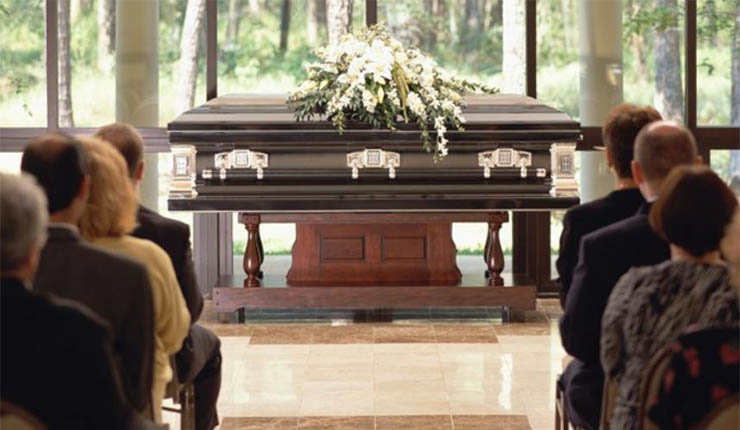
Gifting before death may cause huge capital gains taxes
INCOME TAX “BASIS” CONCEPT
Under our system of federal and state income tax, if the property is sold before death for more than what was pay for it then there is a capital gain. There are special rates which apply to capital gains the penny upon one’s tax bracket. To compute capital gains, you subtract the income tax basis of the property from the net selling price. The income tax “basis” is what was paid for the property in the first place minus any depreciation and adding any expenditures for capital improvements.
DEATH AFFECTS THE BASIS
Income Tax Basis Increase on Death of an Owner – The basis of property acquired from a deceased person’s estate or trust is generally it’s fair market value on the date of the decedent’s death. Thus, the children who inherit a property from their parents through a trust or through a probate proceeding will have a date of death income tax basis. This is known as the step-up in basis at death.
TAX TRAP IF PROPERTY NOT OWNED BY A DECEASED PERSON OR REVOCABLE TRUST.
Sometimes people transfer properties they own into a separate legal entity such as a corporation, or an S corporation or a Limited Partnership or a Limited Liability Company. That completely changes the situation because what happens on death is that the basis of the corporation stock shares or the partnership or LLC shares increase to fair market value, but NOT the real estate owned by the entity. For example, suppose a person buys a property for $100,000. That is his basis in the property. If he dies when the property is still owned by him individually, then the property basis steps up to the date of death value. In that case, his heirs or trust beneficiaries can sell the property after he dies for its date of death value and there is no capital gains tax. However, if he transfers the property to an entity before he dies, he is taking the property out of the category of obtaining a stepped up basis at death because he no longer directly owns it. The entity owns the property at his $100,000 basis and that stays the same. If the entity then sells it for the date of death value of say $1,000,000, then the entity has a taxable gain of $900,000 and a tax of about $300,000. The point of this discussion is to caution people to NOT assume that the increase of basis on death flows through to companies and other entities owned by the deceased because it typically doesn’t. If appreciated property is owned by an entity, then the owners of the entity should seek tax/legal advice to see what might be done in the way of planning or restructuring to maybe remove the property from the entity or effect some other type of planning.
NO BASIS “STEP UP” FOR PREDEATH GIFTS
If property is gifted by the owner to his or her children or to anyone for that matter the income tax basis is the same as what the owner pay for the property originally plus improvements and minus depreciation taken. If this concept is not understood, people can inadvertently cause their children huge capital gains tax by giving away their houses or other property to the children before their death. For example, supposing somebody paid $50,000 for their house and it is now worth $500,000. If they give that house to their children now, then the children will have a $50,000 income tax basis and if the children sell the house for $500,000 or more they will have a $450,000 capital gains which would cause capital gains tax in the approximate amount of $150,000. However, if the parents instead of giving the house to their children now provide in their will or their living trust that the children get the house after they passed away, the children will inherit the house at the date of death fair market value which may be $500,000 or more. After the inheritance, the children can then sell the house and have virtually no capital gains tax.
BASIS FOR A SURVIVING JOINT OWNER
Supposing property is owned as joint tenants, which means that the survivor gets 100% ownership in the property on the death of the other owner. In that situation, the income tax basis for the deceased’s portion of the property gets stepped up to fair market value as of the date of the deceased person’s death. The portion receiving the stepped-up basis is allocated depending upon the amount of money put in to the purchase by each joint tenant.
Supposing the property is owned by a husband and wife either as joint tenants or as community property. Under California law, even if the title is held in joint tenancy, there is a presumption that the property is community property which means that the property is considered owned 50/50 by husband and wife. What happens to the income tax basis when the husband dies and is survived by the wife? Under a special rule for community property, the stepped–up basis at death is available not only for the decedent’s one-half of community property, which is included in the decedent’s gross estate, but also for the surviving spouse’s half, which is not. Fortunately, California is a community property state. Thus, in the example above where a house was purchased for $50,000 and if it is worth $500,000 on the death of one spouse, the income tax basis of the entire property increases to $500,000. Thus, the surviving spouse may sell the house for $500,000 and not have any capital gains tax to pay.
 Orange County Estate Planning Lawyer Blog
Orange County Estate Planning Lawyer Blog


